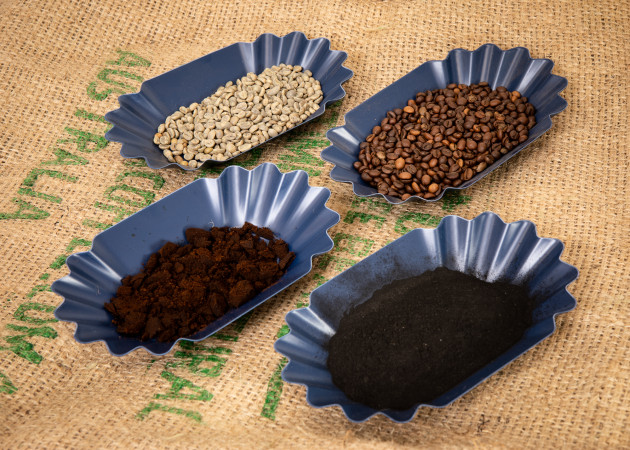Engineers from RMIT University have found a way of making stronger concrete with used roasted coffee grounds, to give the product a “double shot” at life and reduce waste going to landfill.
Indigenous-owned coffee supplier Talwali Coffee Roasters provided used ground coffee for the study, which is the first to prove that waste coffee grounds can be used to improve concrete.
Australia generates 75 million kilograms of ground coffee waste every year, with most of it going landfills. Globally, 10 billion kilograms of spent coffee is generated annually.
RMIT University lead author Dr Rajeev Roychand said the team had developed a technique to make concrete 30 per cent stronger by turning waste coffee grounds into biochar, using a low-energy process without oxygen at 350 degrees Celsius.
“The disposal of organic waste poses an environmental challenge as it emits large amounts of greenhouse gases including methane and carbon dioxide, which contribute to climate change. The inspiration for our work was to find an innovative way of using the large amounts of coffee waste in construction projects rather than going to landfills – to give coffee a ‘double shot’ at life.
“Several councils that are battling with the disposal of organic waste have shown interest in our work, and they have already engaged us for their upcoming infrastructure projects incorporating pyrolysed (heating organic waste in the absence of oxygen) forms of different organic wastes,” said Roychand.
Joint lead author and vice-chancellor’s Indigenous postdoctoral research fellow Dr Shannon Kilmartin-Lynch said construction industries around the world could play a role in transforming this waste into a valuable resource.
“Inspiration for my research, from an Indigenous perspective, involves Caring for Country, ensuring there’s a sustainable life cycle for all materials and avoiding things going into landfill to minimise the impact on the environment.
“The concrete industry has the potential to contribute significantly to increasing the recycling of organic waste such as used coffee. Our research is in the early stages, but these exciting findings offer an innovative way to greatly reduce the amount of organic waste that goes to landfill,” said Kilmartin-Lynch.
Preserving a precious natural resource
Corresponding author and research team leader professor Jie Li said the coffee biochar can replace a portion of the sand that was used to make concrete.

“The ongoing extraction of natural sand around the world – typically taken from river beds and banks – to meet the rapidly growing demands of the construction industry has a big impact on the environment,” Li said.
50 billion tonnes of natural sand are used in construction projects globally every year.
“There are critical and long-lasting challenges in maintaining a sustainable supply of sand due to the finite nature of resources and the environmental impacts of sand mining. With a circular-economy approach, we could keep organic waste out of landfill and also better preserve our natural resources like sand,” Li said.
Co-researcher Dr Mohammad Saberian said the construction industry needed to explore alternative raw materials to ensure its sustainability.
“Our research team has gained extensive experience in developing highly optimised biochars from different organic wastes, including wood biochar, food-waste biochar, agricultural waste biochar, and municipal solid-waste biochar, for concrete applications,” Saberian said.
The researchers plan to develop practical implementation strategies and work towards field trials.






